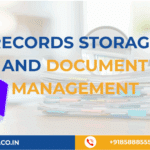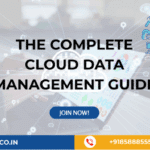What is Cloud Data Management?
Cloud data management refers to the processes, policies, and technologies used to store, manage, secure, and analyze data in cloud environments. In this procedure, cloud platforms and services automate data management tasks, remove cloud sprawl, and allow organizations to get more value out of their cloud data assets.
Why Is Cloud Data Management Important?
- Pay-as-you-go pricing.
Cloud service providers typically charge subscribers per gigabyte, per month. Anywhere access.
The nature of the cloud itself implies that data can be accessed from anywhere.
- Zero maintenance.
Public cloud providers take care of all necessary maintenance.
- Security.
Cloud providers spend vast amounts of financial capital on data security and ensuring their platforms are secure.
- Automated backups.
Certain cloud backup offerings even offer immutable point-in-time data backup features, which can assist in maintaining data safe from ransomware.
- Better data quality.
This method makes it simpler to remove redundant data, reducing storage costs while also removing the inconsistencies that usually exist between data sets.
- Disaster recovery.
Cloud storage provides a reliable data backup solution.These Are important for improving file management and records management.
Key Features of Effective Cloud Data Management
- Resource management
Cloud management platforms make resource management easier by eliminating manual work, such as discovery of resources, tracking of inventory, tagging synchronization, and provisioning and deprovisioning. This avoids wasteful utilization of cloud resources, leading to expensive cloud sprawl or underutilized resources.
- Cost control Cloud Data management
platforms track and report cloud resource expenditure, giving forecasts and detailed reports to allow organizations to stay within budget. By revealing areas of inefficiency and areas of cost saving, the tools allow businesses to maximize return on investment.
- Performance tracking and alerts
Real-time dashboards and alerts inform cloud managers about the usage of resources, spending, and performance metrics. Monitoring important indicators enables teams to quickly respond to variations from targets, thereby ensuring their operational goals are met and resources are being utilized effectively.
- document digitization
document digitization is converting physical media files into a computer-system-comprehensible format.Among the items that these organizations are likely to wish to digitize for safekeeping and record-keeping purposes are the following media files:
Paper documents
Contracts
Maps
Photographs
Books
Blueprints
Credit or identification cards
Video cassettes
Audio cassettes
Compatibility document digitization is a part of digital transformation.
Elevate your data-strategy with Securus Records Management Pvt Ltd
SRM Pvt Ltd on simplicity, performance, and cost effectiveness benefits businesses. Streamlining data management,file management processes, ensuring data security compliance and access is the most important for the organization.
SRM Pvt Ltd has presented SRM Pvt Ltd with an aim to store and manage unstructured data securely and reliably. This data includes data that does not have an organized structure, like backups, media files, and large datasets. Data handling and managing are made simple with versioning, lifecycle policies, and cross-region replication features. This ensures data security and availability.
Also, SRM Pvt Ltd provides network-based block storage solutions. Features such as snapshots, automatic backups, and high-performance storage options are offered. These allow users to store and manage structured data efficiently. records management, file management ,Managed Databases is a service that is fully managed. This service simplifies tasks of maintaining databases; tasks such as provisioning, scaling, backups, and more so organizations can concentrate on their applications instead of the database.
FAQs for Cloud Data Management
Q1: Is it affordable for small businesses?
Answer: Yes.
Q2: What is the role of in compliance?
Answer: Automating data retention through integrated records management protocols align a business with industry standards and protects from suffering penalties. Audit logs and automated backups are essential for compliance.
Q3: What are the challenges associated?
Answer: The challenges involve choosing the right provider and training staff as well as maintaining consistent internet access. But these can be avoided with a little planning and support from the IT department.
Best Practices for Implementation of Cloud Data Management
When implementing cloud data management, several best practices are to be remembered, such as:
- Create a Cloud Data Strategy:
It is necessary to create a cloud data strategy that addresses the goals, objectives, and requirements of the implementation.
- Assess Data Requirements:
Evaluate the business data requirements, such as data volume, velocity, and variety.
- Select the Right Cloud Provider:
Select a cloud provider that satisfies the business needs, such as scalability, flexibility, and cost-effectiveness.
- Enforce Data Security Measures:
Enforce data security measures, such as encryption, access controls, and monitoring.
Conclusion
Successful cloud data management is imperative to organizations seeking to leverage the flexibility, scalability, and affordability of the cloud. With the proper implementation with one of the methods discussed herein, organizations enhance their ability to manage data better, cut on costs, as well as heighten competitiveness. We believe the blog post offers important information into the ways and means of implementation of cloud data management as well as guidelines toward a successful deployment.




